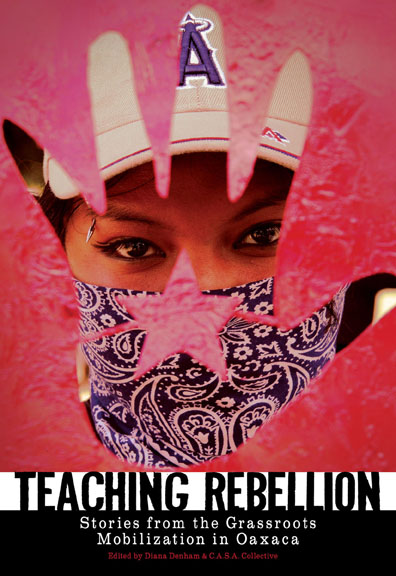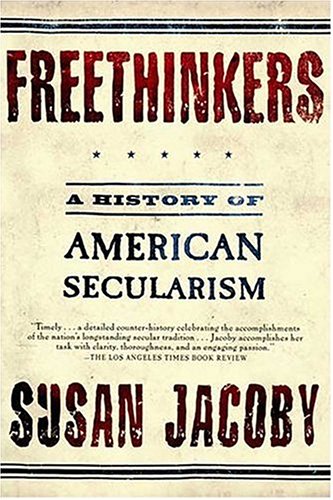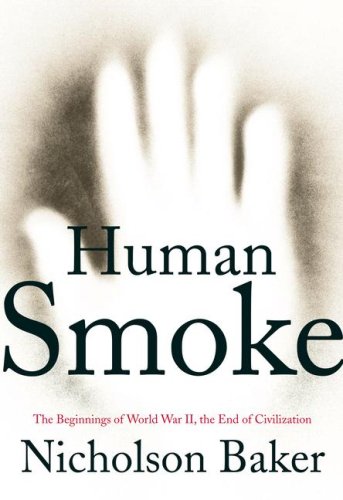Creative Screenwriting
Host: Jeff Goldsmith
Senior Editor Jeff Goldsmith interviews writer-director Thomas McCarthy about The Visitor

To Listen to the Episode
"My task which I am trying to achieve is, by the power of the written word, to make you hear, to make you feel--it is, above all, to make you see." -- Joseph Conrad (1897)


... schools are being transformed into commercial rather than public spheres as students become subject to the whims and practices of marketers whose agenda has nothing to do with critical learning and a great deal to do with restructuring civic life in the image of market culture. Civic courage--upholding the most basic non-commercial principles of democracy--as a defining principle of society is devalued as corporate power transforms school knowledge.
... nowadays, most schools are not producing critically reflective democratic citizens; they are far more engaged in the mass production of idiocy. I use this phrase with precision: the ancient Greek etymology of idios refers to a ‘purely private person,’ one who could participate in the polis as a citizen, but did not.
.jpg)










Rising Voices, an outreach initiative of Global Voices, aims to help bring new voices from new communities and speaking new languages to the global conversation by providing resources and funding to local groups reaching out to underrepresented communities.
...
Introduction
Founded in 2004 by a group of pioneering international bloggers, Global Voices aggregates, curates, and amplifies the global conversation online - shining light on places and people other media often ignore. However, over the years it became increasingly clear that certain regions, languages, and demographics were better represented in the online global conversation than others. The bloggers, vloggers, and podcasters featured on Global Voices tended to be urban, middle-class, and well-educated.
Launched in May 2007 thanks to the support of a Knight News Challenge Award, Rising Voices seeks to empower under-represented communities to make their voices heard online by 1.) providing financial support to outreach projects, 2.) developing a series of participatory media tutorials, and 3.) cultivating a network of passionate citizen media activists to help encourage and support the replication of outreach trainings.
Micro-Grant Competition
Every six months Rising Voices organizes a micro-grant competition, which awards five grants of US$1,000 to $5,000 for new media outreach projects. Ideal applicants present innovative and detailed proposals to teach citizen media techniques to communities that are poorly positioned to discover and take advantage of tools like blogging, video-blogging, and podcasting on their own. In July and December of 2007 we announced our first and second rounds of grantees. Future grant competitions are planned for May/June and November/December of 2008. You can learn more about the bi-annual grant competition by visiting the Apply page.
Outreach Curriculum
One of the most challenging obstacles to effectively training new communities how to take advantage of citizen media tools like blogs, podcasts, and online video is the lack of documentation in languages other than English. A series of six guides - each available in at least six languages - aims to clearly explain the tools, techniques, and potential of citizen media through the use of case studies and easily understandable tutorials. Rising Voices’ Introduction to Citizen Media will soon be joined by more explanatory guides on our Library page.






A wing commander in the [British] Royal Air Force [in Iraq], J. A. Chamier, published his views on how best to deal with tribal rebellions.
The commanding officer must choose the most inaccessible village of the most prominent tribe, said Chamier, and attack it with all available aircraft. “The attack with bombs and machine guns must be relentless and unremitting and carried on continuously by day and night, on houses, inhabitants, crops and cattle,” Chamier wrote. “This sounds brutal, I know, but it must be made brutal to start with. The threat alone in the future will prove efficacious if the lesson is once properly learnt.” It was 1921.
Nicholson Baker, Human Smoke, page 8.
Frederick Birchall, Berlin correspondent for The New York Times, published an article about Germany’s preparations for war. It was October 8, 1933.
Birchell quoted from a recent book by Ewald Banse, a teacher at the Technical High School in Brunswick, Germany. The book was called Wehrwissenschaft — “Military Science.” War was no longer a matter of marches and medals, Banse observed: “It is gas and plague. It is tank and aircraft horror. It is baseness and falsehood. It is hunger and poverty.” And because war is so horrible, Banse said, it must be incorporated into the school curriculum and taught as a new and comprehensive science: “The methods and aims of the new science are to create an unshakable belief in the high ethical value of war and to produce in the individual the psychological readiness for sacrifice in the cause of nation and state.”
Nicholson Baker, Human Smoke, page 44.
Neville Chamberlain told the House of Commons that England was officially at war with Germany… It was September 3, 1939.
Churchill’s mood, as he listened, wasn’t sad at all. He felt, he wrote later, a sense of uplifted serenity and a detachment from human affairs. “The glory of Old England, peace-loving and ill-prepared as she was, but instant and fearless at the call of honour, thrilled my being and seemed to lift our fate to those spheres far removed from earthly facts and physical sensation,” he said.
Nicholson Baker, Human Smoke, page 138.
Dorothy Day, the editor of the Catholic Worker, wrote an editorial called “Our Stand.” “As in the Ethiopian war, the Spanish war, the Japanese and Chinese war, the Russian-Finnish war — so in the present war we stand unalterably opposed to the use of war as a means of saving ‘Christianity,’ ‘civilization,’ ‘democracy.’” She urged a nonviolent opposition to injustice and servitude: She called it the Folly of the Cross.
“We are bidden to love God and to love one another,” she wrote. “It is the whole law, it is all of life. Nothing else matters.” It was June 1940.
Nicholson Baker, Human Smoke, page 192.
“This ordeal by fire has, in a certain sense, even exhilarated the manhood and the womanhood of Britain,” [Churchill] said [in a radio speech, seven months into the German Blitz.] It had lifted them above material facts “into that joyous serenity we think belongs to a better world than this.”
“There are less than seventy million malignant Huns — some of whom are curable and others killable,” Churchill said. The population of the British empire and the United States together amounded to some two hundred million. The Allies had more people and made more steel, he said. The Allies would win. It was April 27, 1941.
Nicholson Baker, Human Smoke, page 192.
He’s fascinating. He’s brilliant. He had a mind well stocked with poetry… So one doesn’t want to dismantle Churchill in the sense of saying he was not a great man. He has hugeness of personality, but he was a man of many phases… In this period that I’m looking at him, he was really a maniac. He was absolutely intent on widening the war and on getting as many people — his own citizens and other countries — involved as possible. I don’t think I’m being unfair to him. It’s just that if you quote him properly you realize he was just hell bent on this confrontation. As the prime minister of Australia [Robert Menzies] said on first meeting Churchill: “This man is a great hater.” It was so fascinating to watch Menzies’ visit. He first reaction was: “humorless… a great hater.” A few nights later: “he’s a great hater, but he does know an awful lot.” And then, late night, 2:30 or 3 in the morning, he’s up again listening to war stories from Churchill, and he writes, “the man has greatness.” Finally, he’s saying, “the Hun must be taught through his hide!” Menzies is now speaking the language of Churchill. So obviously this man Churchill has an incredible power over other human beings.
Nicholson Baker, in conversation with Chris Lydon, April 16, 2008





